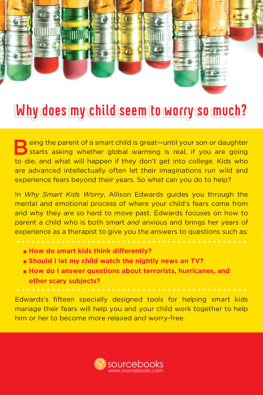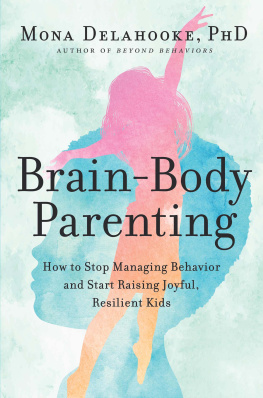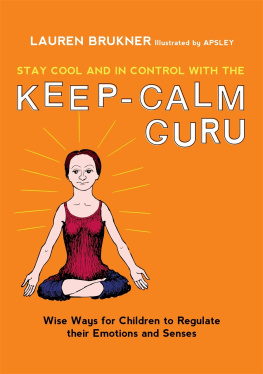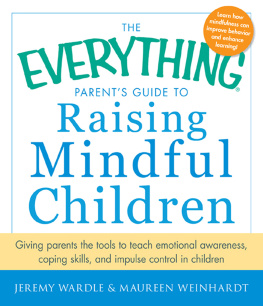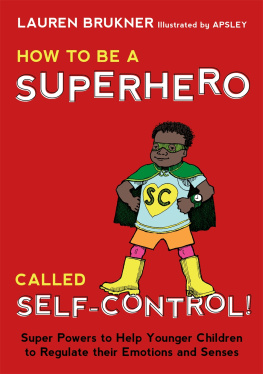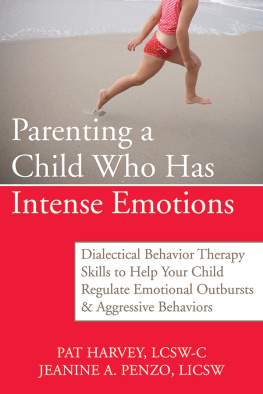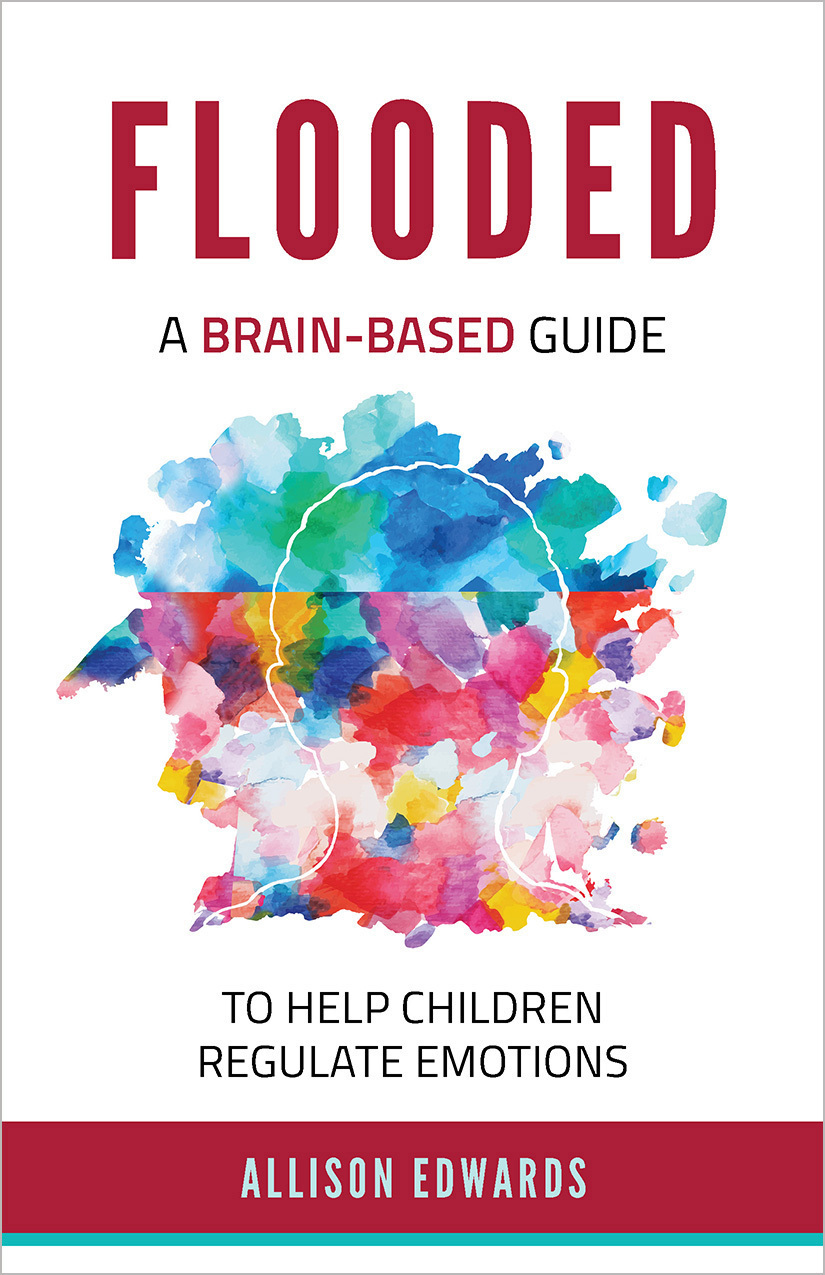Allison Edwards
Flooded: A Brain-Based Guide to Help Children Regulate Emotions
First published by National Center for Youth Issues 2021
Copyright 2021 by Allison Edwards
Third party links are accurate at the time of publication, but may change over time.
Duplication and Copyright
No part of this publication may be reproduced, stored in a retrieval system, or transmitted in any form by any means, electronic, mechanical, photocopy, recording, or otherwise without prior written permission from the publisher except for all worksheets and activities which may be reproduced for a specific group or class. Reproduction for an entire school or school district is prohibited.
The information in this book is designed to provide helpful information on the subjects discussed and is not intended to be used, nor should it be used, to diagnose or treat any mental health or medical condition. For diagnosis or treatment of any mental health or medical issue, consult a licensed counselor, psychologist, or physician. The publisher and author are not responsible for any specific mental or physical health needs that may require medical supervision, and are not liable for any damages or negative consequences from any treatment, action, application, or preparation, to any person reading or following the information in this book. References are provided for informational purposes only and do not constitute endorsement of any websites or other sources.
First edition
ISBN: 978-1-95-394548-8
This book was professionally typeset on Reedsy
Find out more at reedsy.com
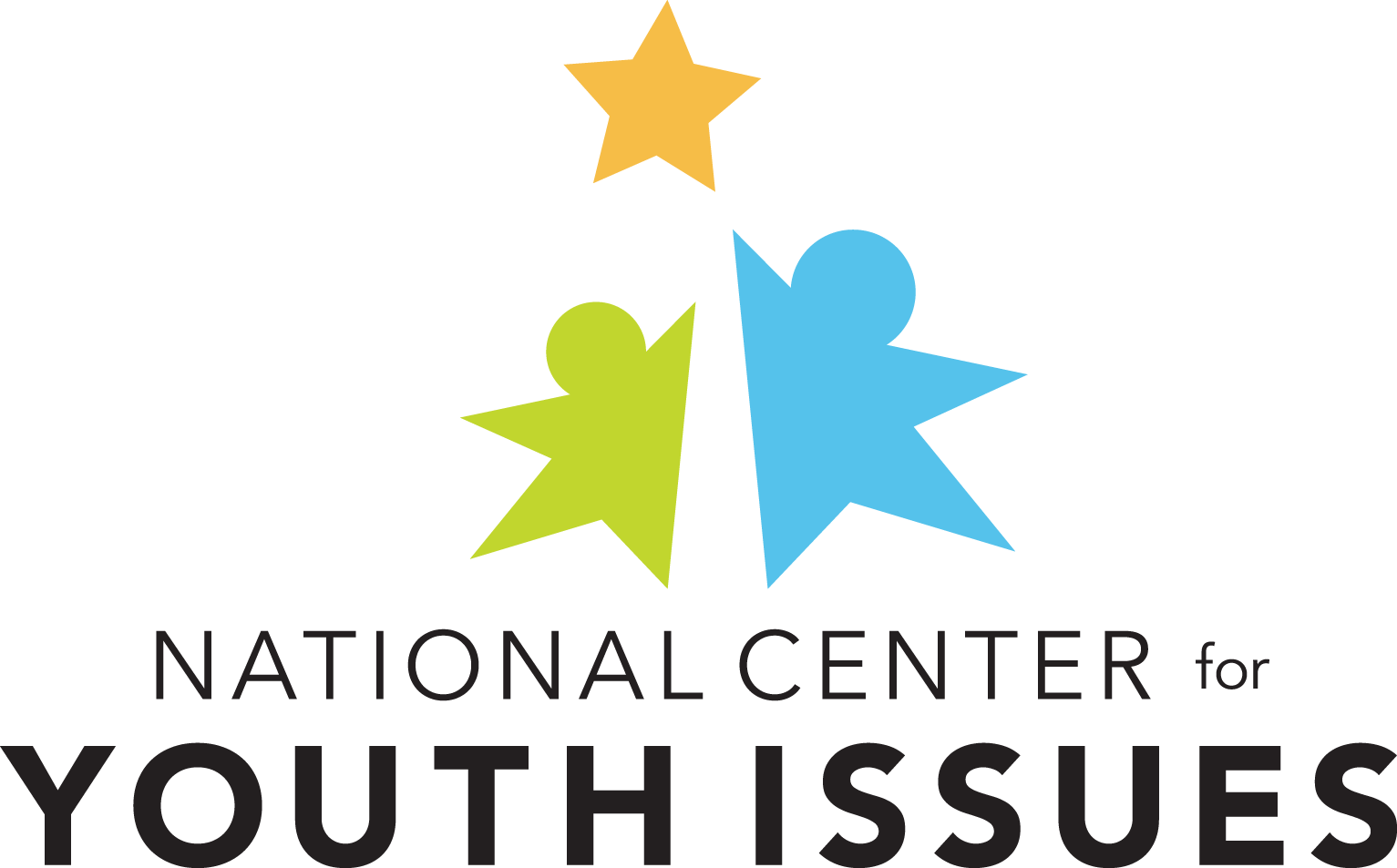
Introduction
For many years, I wondered why children had such a difficult time managing emotions. As a counselor, I had taught them coping strategies, provided a safe space to process their uncomfortable feelings, and encouraged them to self-regulate. But when a child would land in my office reeling from some event, the tools simply didnt work. When I would encourage them to use coping strategies, they only became more frustrated. When I asked simple questions like, Whats wrong? or What happened?, I got convoluted answers. Even the children themselves seemed confused. Its like their brains had completely shut down.
I had been trained in psychology and learned to focus on thoughts, feelings, and behaviors. I thought my job was to help children change their thoughts and teach them coping strategies that would calm the body, no matter their emotional state. My approach shifted dramatically a few years ago when I learned about the biology of emotions. I discovered that there are times when children simply cant flip a switch and calm down or think rationally. Sometimes, I cant do this either. There are times when we are unable to make rational decisions, not because we dont want to, but because our brains wont let us. I call this state The Flood Zone. In this book, I will explain why understanding this zone is important. I will also share with you why teaching children how to regulate emotions is valuable.
Throughout the book, I will be using different terms to define how children deal with emotions. I will use Regulated to describe children who can control their emotions. I will use Dysregulated to describe kids who are unable to control emotions. I will use Self-Regulation to describe children who can control emotions on their own. Finally, I will use Coping Strategies to describe methods used to manage thoughts, feelings and actions.
We are currently experiencing a mental health crisis in our country. In 2019, the World Happiness Report found that citizens in the United States were the least happy theyve ever been (and this was pre-COVID-19). Jean M. Twenge, one of the authors of the study, said, By most accounts, Americans should be happier now than ever. The violent crime rate is low, as is the unemployment rate. Income per capita has steadily grown over the past few decades.1 But its still not enough.
The reasons for our unhappiness vary, but one thing is clear: Our unhappiness is not getting better. Its only getting worse. And as we forge our way through parenting our children, educating them, and helping them become successful, we completely ignore the possibility that even if kids and teens get everything they want, they will still be unhappy. Most of them end up on the treadmill of success, completely unaware of who they are or what they want. They end up at colleges they didnt really want to go to, choosing majors they thought sounded good, only to end up miserable.
A study done by the New York Federal Reserve found that only 27 percent of college graduates end up working in a field directly related to their major.2 I have sat in counseling sessions with a large number of high achieving, stressed out, out-of-balance teenagers who couldnt tell me why they were staying up all night to do homework. They couldnt identify why were they pushing so hard to make straight As or why they thought they had to get into a certain college. Most of them couldnt tell me because they hadnt been asked before. No one had checked in with them to ask how they felt, what they wanted, or why they were pursuing something.
According to the World Health Organization, 35 percent of college students report mental health problems and 64 percent of students who drop out of college do so for mental health reasons.3 We as educators, parents, and professionals have failed to prepare children for the world that awaits them. Meanwhile, school districts cut counseling programs in order to add reading programs. The problem isnt a reading program, but rather a lack of emphasis on the emotional state of children as they pursue an education. For example, if a student struggles with reading and emotion regulation, they might throw their book on the floor and refuse to try. If a student struggles with reading but can manage their emotions, they will have a greater ability to overcome the emotional discomfort and greatly improve their reading skills.
While our education system has overlooked the importance of emotion regulation, the business world has not. The Journal of Vocational Behavior reported that emotional intelligence is linked to higher salaries and increased job satisfaction.4 Business leader Eric Lupton stated that understanding your emotions, controlling them, and understanding other peoples might be the most important asset in working with others.5 Even so, we as parents and educators have yet to prioritize the task of helping children identify and manage their emotions. We have focused on other goals like academics and external successes, believing if children excel in these areas, they will be happy. This is a faulty assumption. Some of the most unhappy children I have encountered are the most successful. Externally, they seem to have everything they could want, but internally they feel empty, confused, and sad.
Whether youre the parent of a dysregulated child, a counselor trying to help students learn emotional literacy, or an educator with an unruly class, the goal is still the same: We must prepare kids to be able to manage internally what happens to them externally. This is the best education we can give them. Tim Elmore, an expert on the millennial generation says, Prepare your child for the road instead of the road for your child.6 In order to prepare children for the world that awaits them, we need to teach them how to identify their feelings, learn what triggers those feelings, and give them coping strategies to manage feelings in a healthy way. In order to do that, we must understand emotions ourselves.


